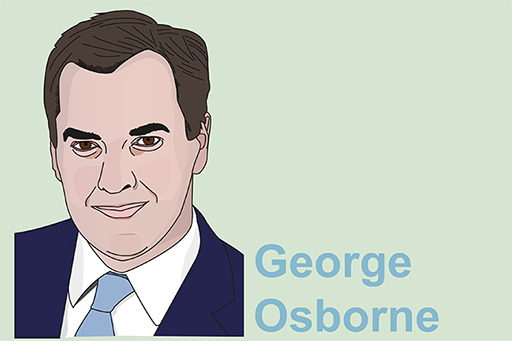7.2.3 The 2015 pensions revolution: freeing up access to pension pots

In his 2014 Budget Statement the Chancellor, George Osborne, unveiled proposals for pensions reform which are now changing the financial options for those approaching retirement. These proposals took effect from April 2015 and have led to tax restrictions on access to pension pots being eased.
These are the key features of the pensions revolution, introduced by the Coalition Government:
- The 2015 Taxation of Pensions Act provides greater freedom for those in ‘defined contribution’ schemes to access personal pension funds (or ‘pots’). Funds can be accessed before retirement and used, say, to invest in a range of assets (like property) or to pay off a mortgage or other debts or simply to finance current consumption. For each lump sum accessed 25% is tax-free. Sums accessed in excess of 25% are taxable as income and so could attract tax of up to 45% (for taxable income above £150,000).
- Those retiring with defined contribution pensions now have increased alternatives to buying an annuity with their pension savings. At retirement, up to 25% of the remaining pot can be taken as a tax-free lump sum (as previously applied prior to 2015). But, as an alternative to buying an annuity many are expected to leave at least 75% of their pots invested and take income from the fund when needed.
- There is a proposal for freedom, from April 2016, for 5 million existing defined contribution pensioners to sell their annuities for a lump sum which can then be accessed in the same way as for those approaching retirement, as set out above.
- The government announced that the cap on the lifetime allowance for pension schemes of £1.25m will reduce to £1m from April 2016. Amounts held in pension funds in excess of the lifetime allowance are subject to tax when accessed ,with a rate of 55% applying to lump sums and 25% (on top of normal tax) for taxable income drawn from the fund.
- There is greater flexibility to pass on a pension to dependents after death. For those dying prior to the age of 75 income from pension assets can be passed on to beneficiaries tax-free. This tax treatment previously only applied to lump sums from a pension ‘pot’. For those dying aged 75 or over, the tax rate applied to lump sums is now 45% instead of 55% (reducing to normal income tax rates from April 2016). Normal tax rates apply to income passed to beneficiaries.
This last reform is forecast to cost the Exchequer some £150m a year. Arguably, what it does do, though, is to remove an unfair excess tax charge on pension pots for which the deceased have spent their lives contributing to. An alternative view is that it will provide a way to avoid inheritance tax, with those in retirement drawing on savings and other investments while leaving their pension pots untouched. Doing this could leave up to £1.25 million in pension pots being exempt from inheritance tax.
While the greater flexibility that these reforms provide for pensioners should be welcomed a few concerns cannot go unobserved.
First, one motivation for these greater freedoms seems, in part, to be the belief that annuities are poor value and, by inference, that other ways of investing pension funds may be better for pensioners. Yet while there have clearly been issues about how some insurance companies have sold annuity products, it is unfair to say that all are poor value. The low annuity rates prevailing today simply reflect growing longevity and the currently prevailing low interest rates. If you want to learn more, see the related link at the bottom of this step.
Second, there are concerns that many pensioners will spend large portions of their pension pot and not invest the funds to provide the income stream needed in retirement. The upshot is that within a few years, some pensioners will find themselves short of the income needed for a comfortable retirement.
Finally, there is the concern – particularly given the pace of the reforms – that the pensions industry is currently not adequately prepared to deal with the consequent advice that will be required as a result of wider freedoms available to those pensioners and those moving towards retirement.
